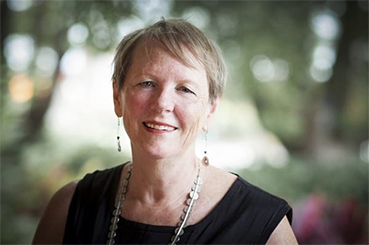Katherine Gibson will be guest speaker at the 9th CIRIEC International Research Conference on Social Economy in Seoul (Republic of Korea) from 04 to 06 July 2023. She will take the floor to present her views about our world today and its future, the place of the social economy and alternative economy models in our era, and recent research on social enterprise in the Asia-Pacific region.
Katherine Gibson is currently professor at the Institute of Culture and Society, University of Western Sydney and internationally known for her research on rethinking economies as sites of ethical action. With her collaborator for over 30 years, the late Professor Julie Graham, they founded the Community Economies Collective (CEC) which is now known as the community Economies Institute (CEI, see www.communityeconomies.org).
As the collective author J.K. Gibson-Graham, Katherine and Julie developed a distinctive approach to economic geography drawing on feminism, post-structuralism, anti-essentialist Marxism, and action research. Their landmark 1996 book, The end of capitalism (as we knew it): a feminist critique of political economy, was republished in 2006 with a new Introduction and, in 2011 was named a Classic in Human Geography by the leading journal Progress in Human Geography. In 2006 they published a follow up book, A Postcapitalist Politics. Gibson-Graham’s work on a post-capitalist economic politics has had a widespread readership among those interested in economic alternatives. The diverse economies research program they initiated has become a vibrant sub-field of study within the social sciences.
Inspired by the work of Gibson-Graham, the Community Economies Research Network (CERN) was founded in 2013. With over 300 members it is an ongoing collaboration between academic and community researchers, activists and artists in Australia, New Zealand, North America, Latin America, Europe and Southeast Asia. Its goal is to theorise, discuss, represent and ultimately enact new visions of economy. By making multiple forms of economic life viable options for action, community economies researchers aim to open the economy to ethical debate around concerns such as: the survival needs of humans and earth others; the distribution of surplus that supports wellbeing now and in the future; encountering others via just transactions; enlarging and sharing our commons; and investing in futures that sustain us all.
Professor Gibson has directed action research projects with communities interested in alternative economic development pathways in Australia, Papua New Guinea, the Solomon Islands, the Philippines, Cambodia and the USA. These experiences have contributed to elaboration of a distinctive ‘Community Partnering Approach to Local Development’. In 2008 she made a 50-minute film on social enterprise development as a local development strategy in the Philippines. In 2019 she produced The Bamboo Bridge (https://vimeo.com/431670678 ), a 65 minute film that documents the community economy that supported the annual building of a 1.5 km bridge across the Mekong River in Cambodia.
Among her recent books, Take Back the Economy: An Ethical guide for Transforming Our Communities (2013 co-authored with Jenny Cameron and Stephen Healy), is a ‘how to’ manual aimed at a popular audience; and The Handbook of Diverse Economies (2020 co-edited with Kelly Dombroski) presents research that inventories economic difference as a prelude to building ethical ways of living on our dangerously degraded planet. With contributing authors from twenty countries, it presents new thinking around subjectivity and methodology as strategies for making other worlds possible. The Handbook moves from looking at diverse forms of enterprise, to labour, transactions, property, and finance as well as decentred subjectivity and diverse economies methodology. The book investigates the diversity of new forms of economic activities and proposes ideas to do economy differently.







